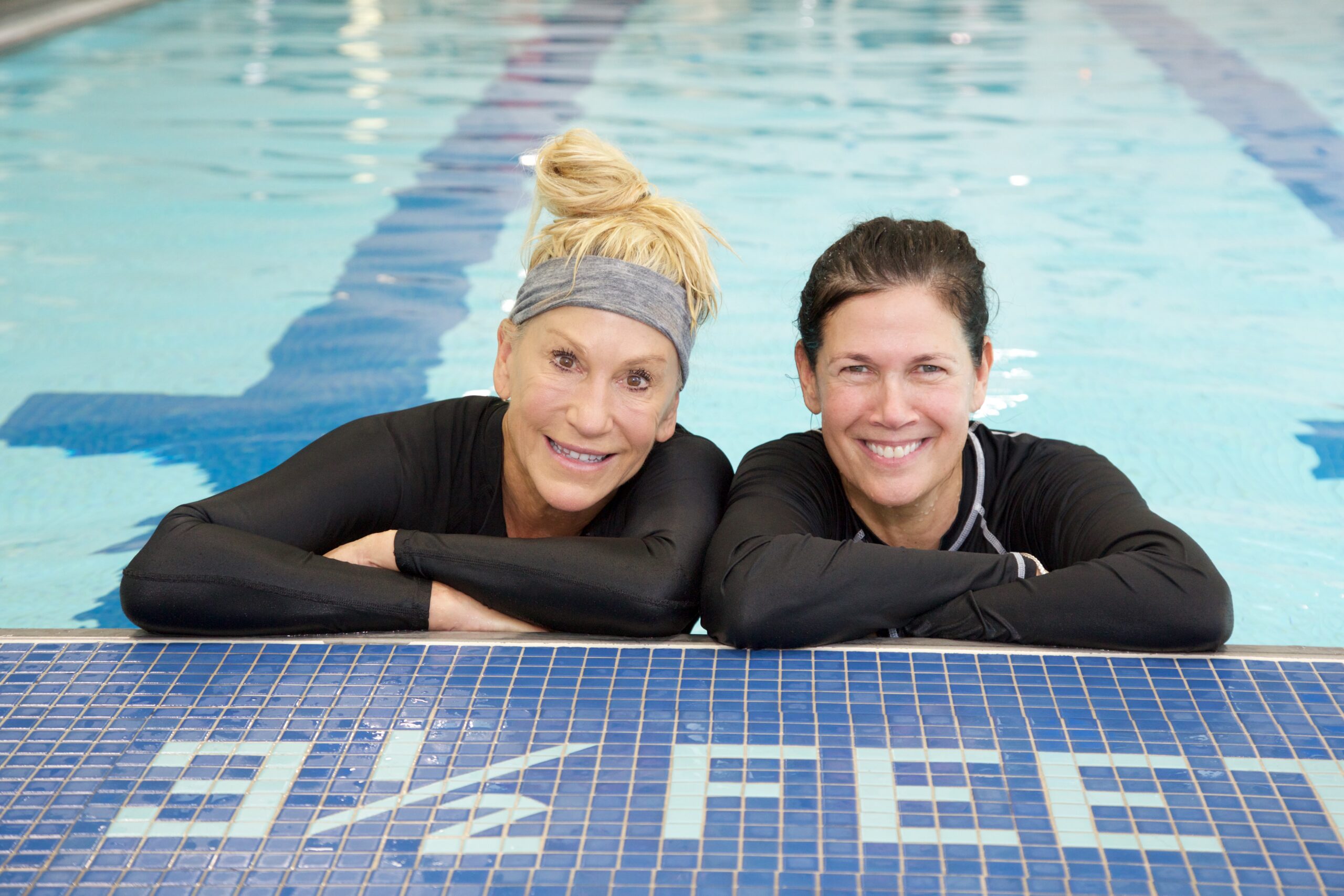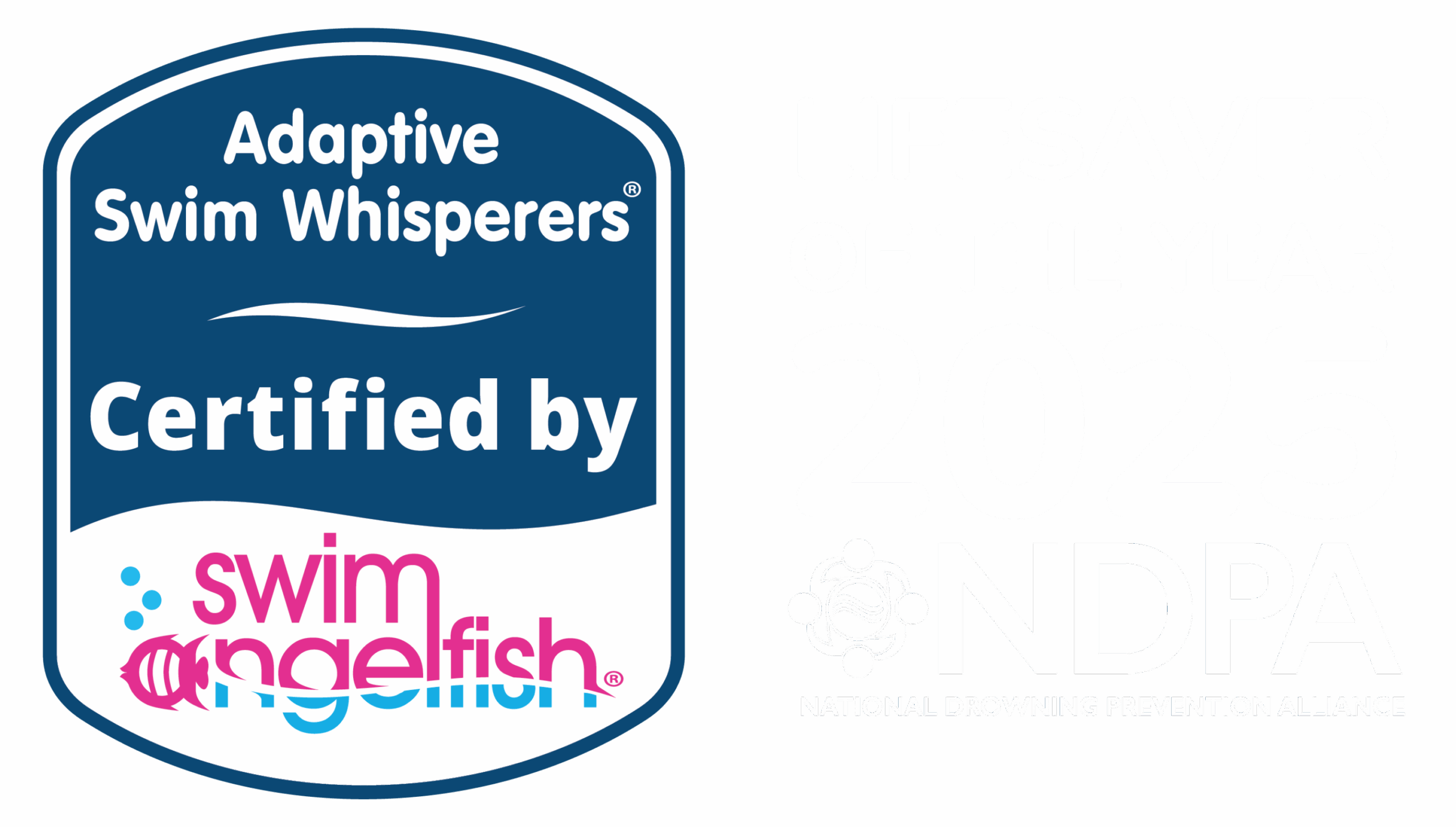Adaptive Water Safety Day Empowers Neurodiverse Children
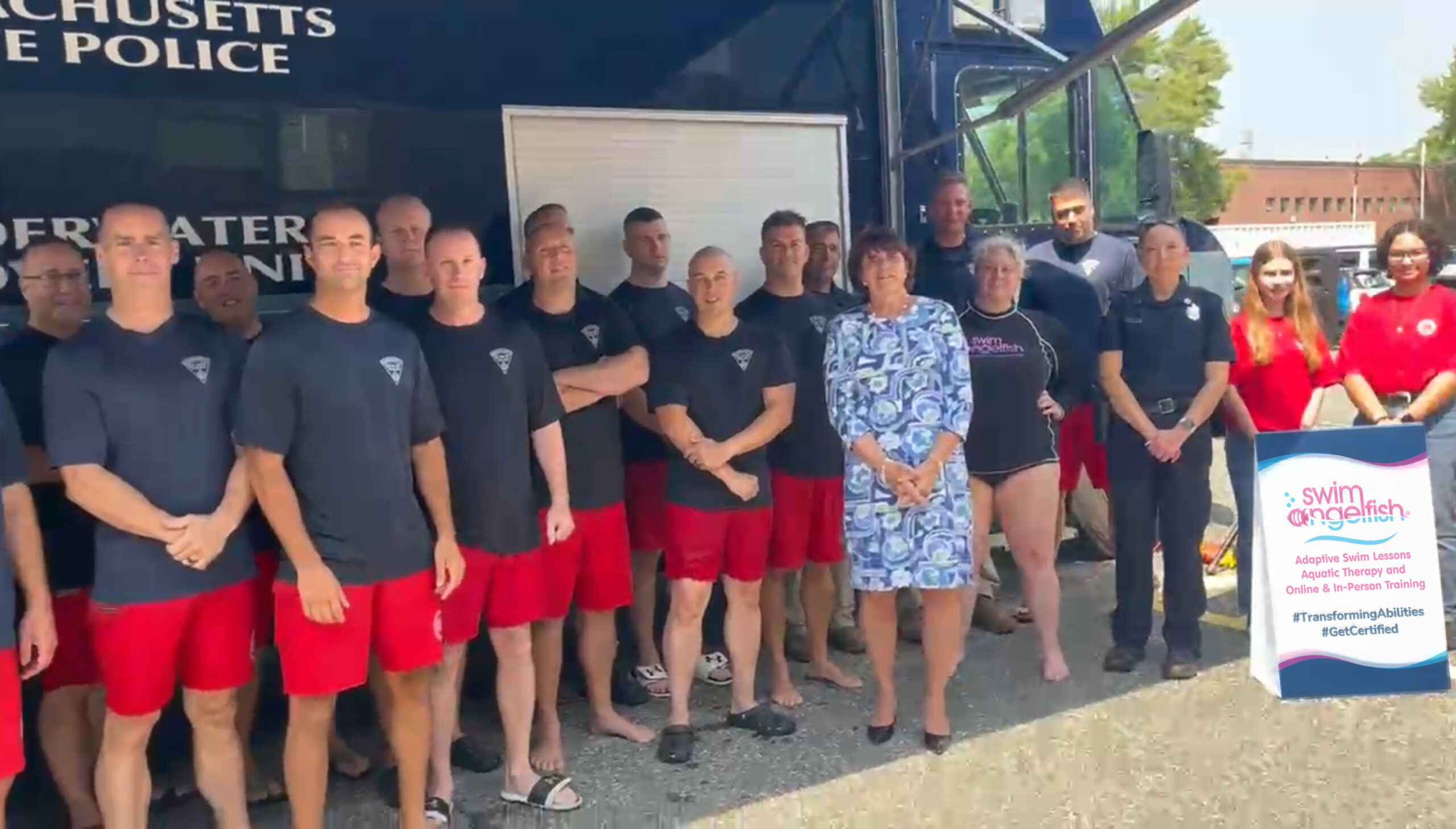
Middlesex District Attorney Marian Ryan, Swim Angelfish, and the Massachusetts State Police Dive Team teamed up to host a free Adaptive Water Safety Day on August 14 at the Massachusetts State Police Headquarters pool in Framingham.
The event was designed for children with autism, anxiety, sensory needs, motor challenges, and other special needs who may struggle with impulsivity and attraction to water or fear and avoidance of water.
The event’s goals were to introduce life-saving skills and practice using the rescue tube, life jackets, and introduce a ritual of asking permission before entering any body of water.
Empowering Children with Autism and Neurodiverse Needs Through Water Safety
According to a 2017 study in the American Journal of Public Health, children with autism are 160 times more likely to drown than neurotypical children. Tragically, over the last few summers in Massachusetts, there have been several cases where children with autism have drowned in bodies of water near their homes.
Education plays a critical role in addressing these statistics. That’s why we created the free adaptive water safety toolkit packed with advice specifically for the neurodiverse community and individuals with special needs.
By partnering with community organizations and offering experiential water safety days, we can provide individuals with autism, ADHD, Down Syndrome, and other conditions a supportive environment to learn life-saving skills.
Police officers were guided by our trained staff who are certified in the adaptive Swim Whisperers® method, to address the universal roadblocks from our online training. The roadblocks we were focusing on during this adaptive water safety day were:
This dynamic collaboration of the dive team and Swim Angelfish empowered 20 families to reach the goals of new water safety routines and rituals in near and around water for drowning prevention.
Hands-On Water Safety and Education
We brought our adaptive water safety education to life through an in-water safety skills workshop for children ages 4-18. During these sessions, children and parents were taught life-saving water skills by experienced aquatic professionals trained in the Swim Whisperers® method.
There are generally two types of swimmers: those drawn to water and prone to impulsivity (seekers), and those who experience anxiety and fear around it (avoiders). Accordingly, we divided in-water workshop participants into two groups based on their comfort level with water.
In the In-Water Workshop we focused on 5 key skills necessary for water safety:
To further support and educate families, we also created out-of-water safety training stations. At each station, children were taught how to effectively use life jackets and flotation devices. This is an important skill, as many children do not like to touch or hold equipment that they are not familiar with.
Prior to the event, we asked the Massachusetts State Police Dive Team to complete our Adaptive Learn To Swim Tips for Instructors Free Mini Course to get an introduction to the 14 most common roadblocks faced by swimmers with Autism, Anxiety, Discomfort, Trauma, Delays, and Sensory, Physical, and Motor Challenges.
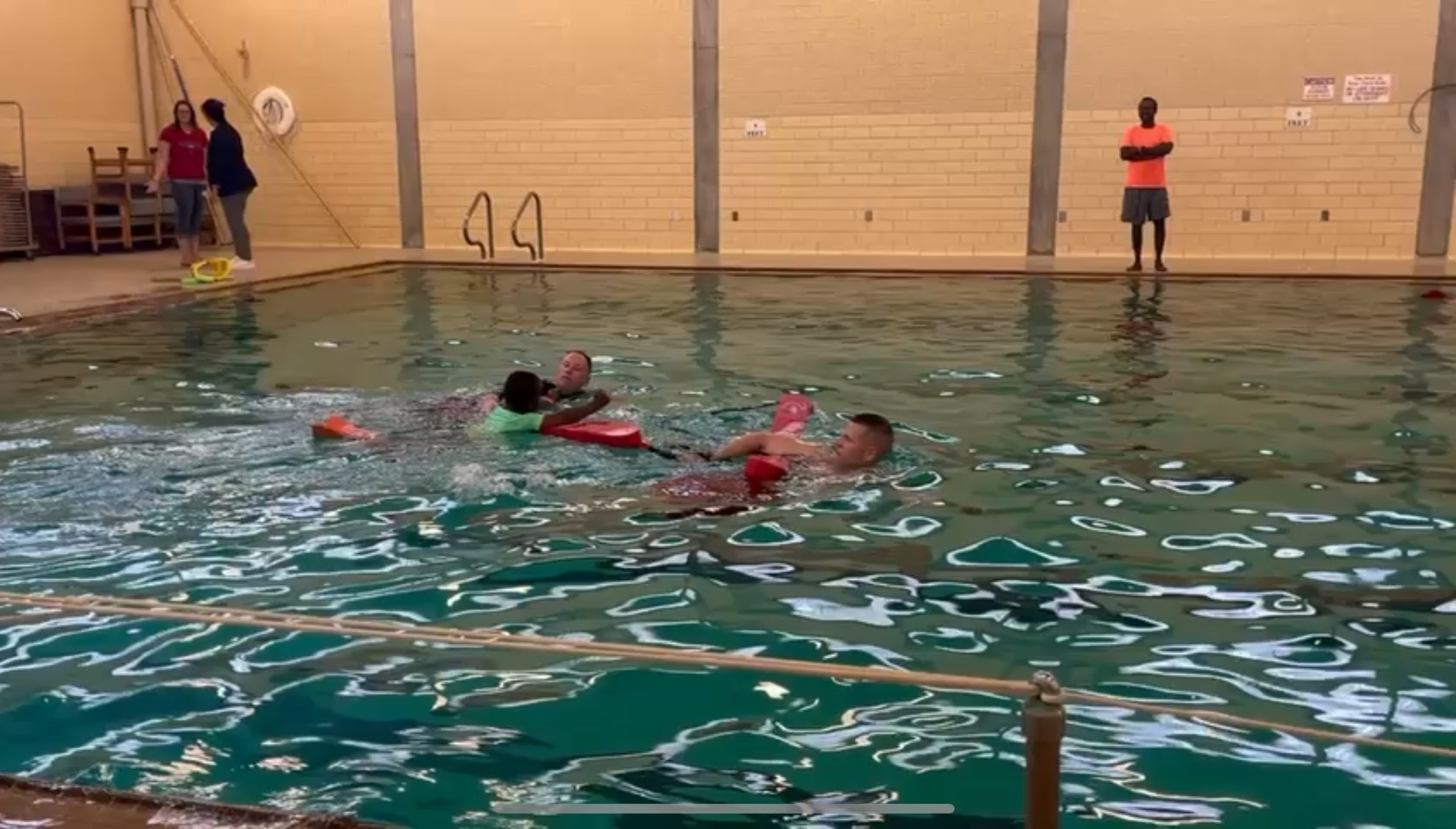
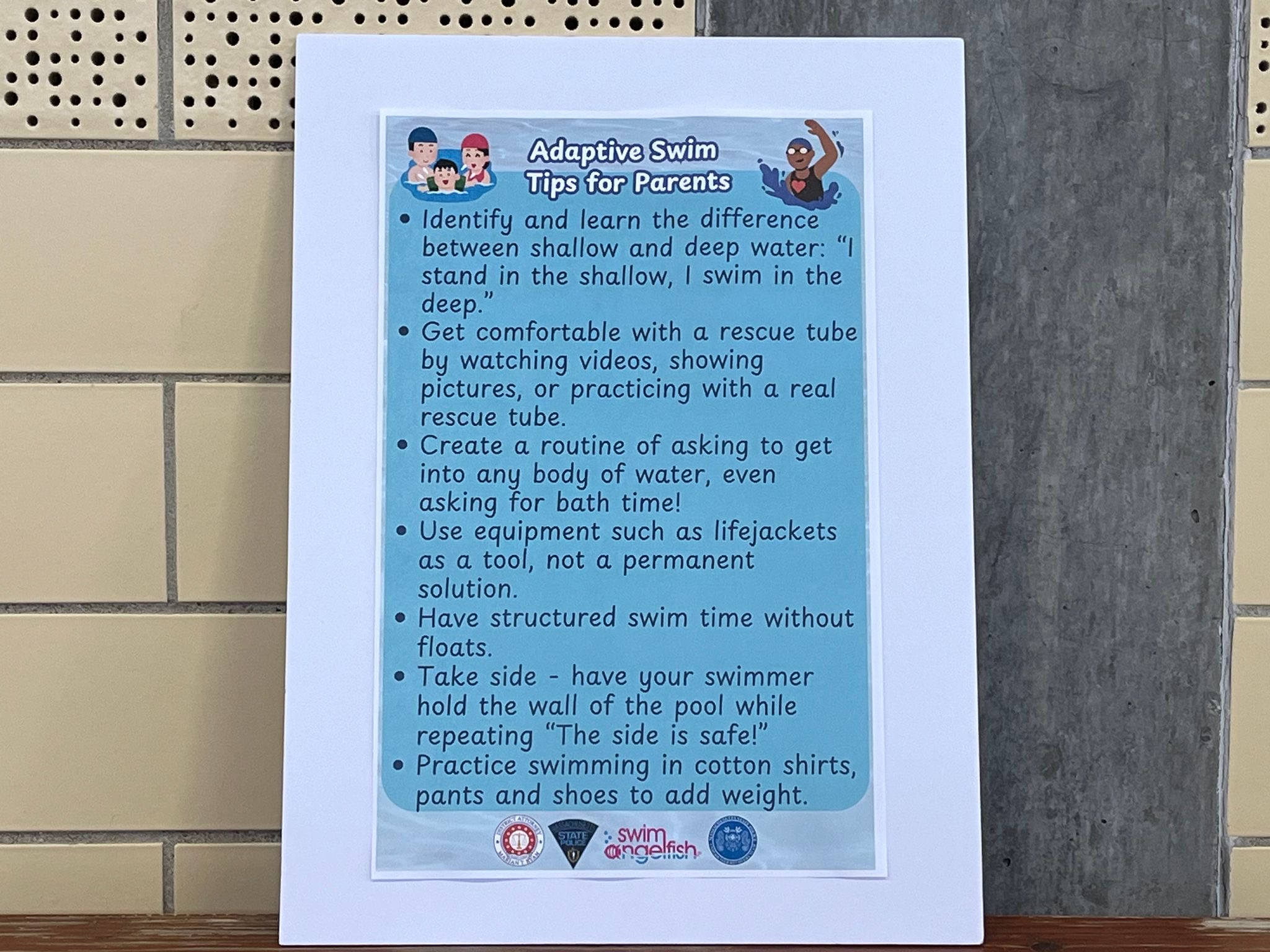
At the conclusion of the event, the dive team had successfully used some of the tips they learned and witnessed firsthand their impact. One helpful tip involved getting kids to wear lifejackets.
Many of the officers hadn’t considered the importance of keeping a child moving while putting on a lifejacket to encourage cooperation. After a child initially refused to wear a lifejacket, officers sought advice from our trained Swim Whisperers® instructors. These instructors suggested allowing the child to continue moving while a second officer assisted with the lifejacket. This approach proved successful in getting the children to put on and ultimately swim in the lifejackets.
A Community Successfully Comes Together for Water Safety
Every family reached goals and left with a sense of accomplishment and comfort due to this free event. Within 4 weeks, the event was implemented and successfully pulled off, thanks to the guidance of the District Attorney and her incredible team.
Parents also left the event with free resources provided by Swim Angelfish and tangible life-saving skills.

